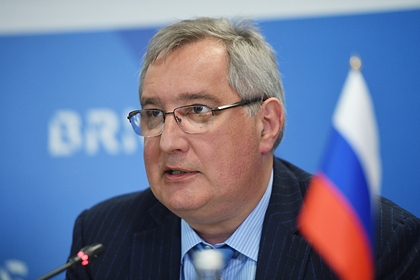Moscow. November 26. INTERFAX-the international space station (ISS) is capable of functioning for quite a long time, but a number of modules may have to be replaced, said the head of Roscosmos Dmitry Rogozin
"Of course, some ISS modules have significantly exceeded their service life (15 years), and we are monitoring their technical condition. But I think it's too early to write off the station. At the Mir station, some modules also had to be decommissioned, but this did not lead to conclusions about the "aging" of the entire station," Rogozin said on Facebook.
Earlier, first Deputy Director of the rocket and space Corporation Energia Vladimir Solovyov at a meeting of the space Council of the Russian Academy of Sciences said that the Corporation's specialists predict "an avalanche of failure of numerous elements on Board the ISS" after 2025. According to him, at the moment "there are a number of elements that are seriously affected by damage and are out of service. Many of them cannot be replaced."
"According to RSC Energia, spending on further financing, which is estimated at 10-15 billion rubles, is too large. It is necessary to review the terms of further participation in the program and focus on the implementation of orbital station programs, " Solovyov said.
As Solovyov explained later, RSC Energia does not propose to abandon the operation of the station after 2025, and his speech at the Council was "informational in nature" and did not contain "proposals for further development of the ISS".
Roscosmos reported that RSC Energia has submitted proposals for the project of a new multifunctional orbital station. These projects will be reviewed by the Roscosmos scientific and technical Council and then reported to the government.
"The issue of the ISS service life depends on both technical and political issues discussed with partners. Anyway, it is planned to start consultations with NASA and other partners on these topics at the beginning of next year, " the state Corporation noted.
Some experts and employees of the rocket and space industry Express the opinion that the large age of the station leads to malfunctions. For example, cosmonaut Ivan Wagner, who returned from the ISS in October, said that it was the age of the station that could lead to an air leak from the Zvezda module, which the ISS crew has been searching for and eliminating since August 2020. In addition, in the fall, there were several cases of failure of systems on the ISS, in particular the Electron-VM oxygen regeneration system.
At the same time, Roscosmos Executive Director Sergey Krikalev rejected claims about an increase in the number of breakdowns at the station and said that the ISS modules are able to work significantly longer than their warranty period.
The lifetime of the ISS will expire in 2024. As reported, Russia is in talks with partners for the station to extend its service life until 2030.
Earlier, Rogozin said that Russia is preparing to create a new orbital station.
According to him, it can be based on new Russian modules - node and energy, developed for the ISS.
"We plan to add several modules to it: in fact, after 2030, the Russian Federation will be the country that will create a new station," Rogozin said.
In mid-may, he said that the Energia Rocket and space Corporation, under the leadership of Igor Ozar, who took the position of acting CEO, will develop the concept of a new orbital station.
Yevgeny Mikrin, the General designer of Energia, who died in may from coronavirus, previously called it expedient to create a Russian orbital station after the completion of the ISS project, while not excluding international participation in the project.
"All expensive equipment from the Russian segment of the ISS can be transferred to this station. It will consist of five modules. The first three-MLM, nodal and NEM from the ISS-plus two more new ones. It will have a mass of 60 tons, " Mikrin said.

